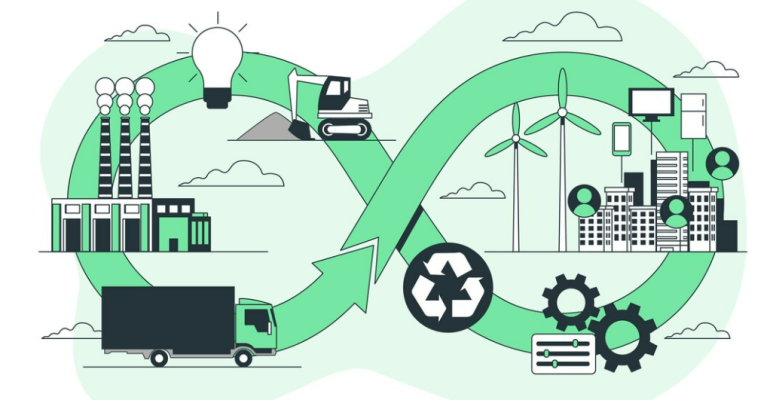Sustainable Manufacturing
Sustainable Manufacturing
In an era where climate change and environmental degradation are paramount concerns, the call for sustainable manufacturing practices has never been more urgent. This evolving landscape presents a unique and impactful opportunity for MBA graduates to be at the forefront of pioneering significant change.
The Sustainability Imperative in Manufacturing
Sustainable manufacturing goes beyond minimizing environmental impact; it’s about creating a completely integrated approach that balances ecological considerations with economic performance and social responsibility. So, what makes MBA graduates the ideal candidates to lead this transformative journey?
- Holistic Business Understanding:
- MBA programs cultivate a comprehensive understanding of business operations, ensuring that graduates can balance sustainability with profitability and performance.
- Strategic Leadership:
- The leadership qualities developed through an MBA are essential in driving organizational change, a critical component in shifting to sustainable practices.
- Innovation and Creativity:
- Tackling the challenges of sustainable manufacturing requires innovative thinking, a skill that is honed through various aspects of an MBA curriculum.
- Ethical Decision-Making:
- Sustainability is inherently tied to ethics, and MBA programs place a strong emphasis on ethical decision-making and corporate social responsibility.
Implementing Sustainable Practices with an MBA
But how can you, as an MBA graduate, practically apply your skills to promote sustainability in manufacturing?
- Efficiency and Waste Reduction:
- Initiate comprehensive audits to identify areas of waste and inefficiency, subsequently implementing processes that conserve resources and reduce waste.
- Supply Chain Sustainability:
- Evaluate supply chain practices, ensuring suppliers adhere to sustainability standards, and opt for locally sourced materials to reduce the carbon footprint.
- Energy Management:
- Invest in energy-efficient technologies and renewable energy sources to power manufacturing operations, thereby reducing greenhouse gas emissions.
- Employee Engagement and Training:
- Develop training programs that educate employees about sustainable practices, fostering a company culture that values environmental responsibility.
- Sustainable Product Design:
- Influence the design process to favor products that are durable, recyclable, or biodegradable, minimizing environmental impact.
Continued Learning and Advocacy Post-MBA
- Certifications: Pursue additional certifications in environmental management systems or sustainable supply chains.
- Sustainability Conferences: Attend conferences focused on green manufacturing and sustainability to stay informed about the latest trends and network with professionals.
- Join Environmental Initiatives: Engage with global environmental initiatives to stay updated, contribute to meaningful projects, and enhance your CV.
- Publications and Research: Subscribe to journals or online platforms dedicated to sustainable manufacturing and corporate sustainability.
Conclusion
The world is at an environmental crossroads, and the manufacturing sector plays a crucial role in the trajectory toward sustainability. With the comprehensive education provided by an MBA, you’re equipped not just to partake in this sector but to lead it courageously into a sustainable future. Your blend of strategic foresight, ethical responsibility, and innovative thinking is exactly what the industry needs to navigate this green revolution successfully.








